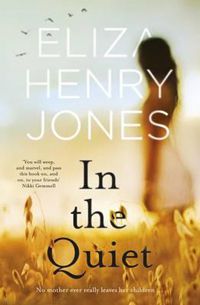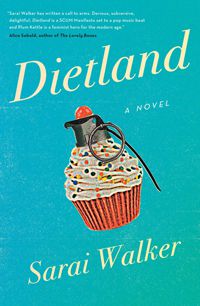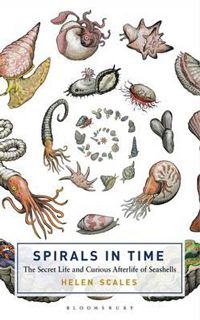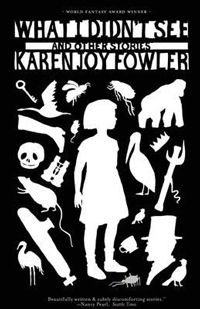Each week we bring you a sample of the books we’re reading, the films we’re watching, the television shows we’re hooked on or the music we’re loving.
Bronte Coates is reading In the Quiet by Eliza Henry-Jones
We announced the shortlist for the Readings Prize for New Australian Fiction last week and I’m in the process of reading my way through the list. I want to finish all six books in time for our Shortlist Showdown, to be hosted by literary journal Kill Your Darlings on Tuesday 22 September. You can find out more about this free event here.
Luckily, I’d already read three of the shortlisted titles in the past year (Ellen Van Neerven’s Heat and Light, Nic Low’s Arms Race and Stephanie Bishop’s The Other Side of the World) and can attest all three authors are worthy shortlistees. As of this week, I can also include Eliza Henry-Jones in this estimation.
I finished In the Quiet in just a matter of days; it’s one of those books that once begun, was near-impossible to put down again. The writing is beautiful and I found the story really moving. In her review, my colleague Nina writes, “Henry-Jones is especially skilled at writing teenage characters and capturing all of the mess, uncertainty and heartbreak of that age”, and this was my favourite part of the book.
Stella Charls is reading Dietland by Sarai Walker
This week I attended a panel at Readings St Kilda, chaired by Shop Manager Amy Vuleta. The panel brought together Ellena Savage, editor of The Lifted Brow, C.S. Pacat, author of the Captive Prince Trilogy and international guest Sarai Walker, author of the new novel Dietland. These women discussed their writing within the context of modern feminism, and the conversation covered everything from feminist texts that have influenced them, patriarchal texts their writing seeks to challenge and the male/female gaze in Magic Mike or the 50 Shades series. It was an absolute pleasure to hear from these fiercely intelligent and entertaining writers, and I rushed home eager to get stuck into Walker’s Dietland.
My colleague Nina raved that Dietland “has a lot of fascinating things to say about what it’s like to be a fat woman in today’s society. It’s not a safe or simple read, and Sarai Walker doesn’t offer easy answers or cookie-cutter happy ending”. (You can read her review here.) This intrigued me – I’ve only just started the book, but I’m already finding Plum a wonderful character to spend time with. I’ve been warned that Walker’s biting, sometimes-violent satire goes further than you could ever expect, and I can’t wait to see just how far that is!
Amy Vuleta is reading Spirals in Time: The Secret Life and Curious Afterlife of Seashells by Helen Scales
I know everyone’s been talking this week about how great it is that it’s finally springtime: the weather is 2 degrees warmer! (except when it’s colder); the sun is 2% brighter! (except when it’s overcast again); there are flowers and stuff! But it’s just not enough for me. I’m dreaming of the summertime.
What I want are weekends at the beach in the blazing, hot sunshine, combing the shore for shells, digging up pipis in the receding wash of ocean, and exploring rock pools for the collection of limpets, snails, crabs, and molluscs hidden in shallow corners. This summer I’ll be more than ready for it, because I’m learning all about ‘the secret life and curious afterlife of seashells’ in Helen Scales’s book Spirals in Time.
Scales writes: ‘No matter where you are in the world, you will never be far from a mollusc’. This book offers a fascinating history and taxonomy of hundreds of shelled sea creatures, the science of shell structures and formation, details of mating habits, and prominent researchers, explorers and artists who’ve furthered our knowledge of shells and the creatures that make their homes within.
If you don’t much like the beach, or are not convinced about the relevance of seashells to your modern technologically mediated city life, consider this: ‘For hundreds and thousands of years people have used molluscs and their shells as symbols of sex and death, as gems and ornaments and food, musical instruments and money, a source of golden fibres and things to simply gather together and look at’. I think that reading a little about why shells have, should, and do matter to the natural world can only be a good thing.
Alan Vaarwerk is reading What I Didn’t See by Karen Joy Fowler
This week I had a real meet-your-heroes moment when I was introduced to my long-time favourite writer Kelly Link.(I’ve raved about her on the Readings blog before, right over here) who is currently in Australia for both the Melbourne and Brisbane Writers Festivals. Not only was she lovely to talk to and generous with her time, but as we were discussing my recent reading list, she reached into her bag and, saying I might like it, handed me a copy of Karen Joy Fowler’s collection What I Didn’t See, published in the US by Small Beer Press.
Fowler’s perhaps best-known in Australia for her novel We Are All Completely Beside Ourselves, but her short fiction is tightly-coiled and full of interesting excursions into YA, fantasy, science fiction and history, among other genres. A story in the first half of the collection, about the tragic theatre career of John Wilkes Booth’s brother, has stayed with me days after reading.






